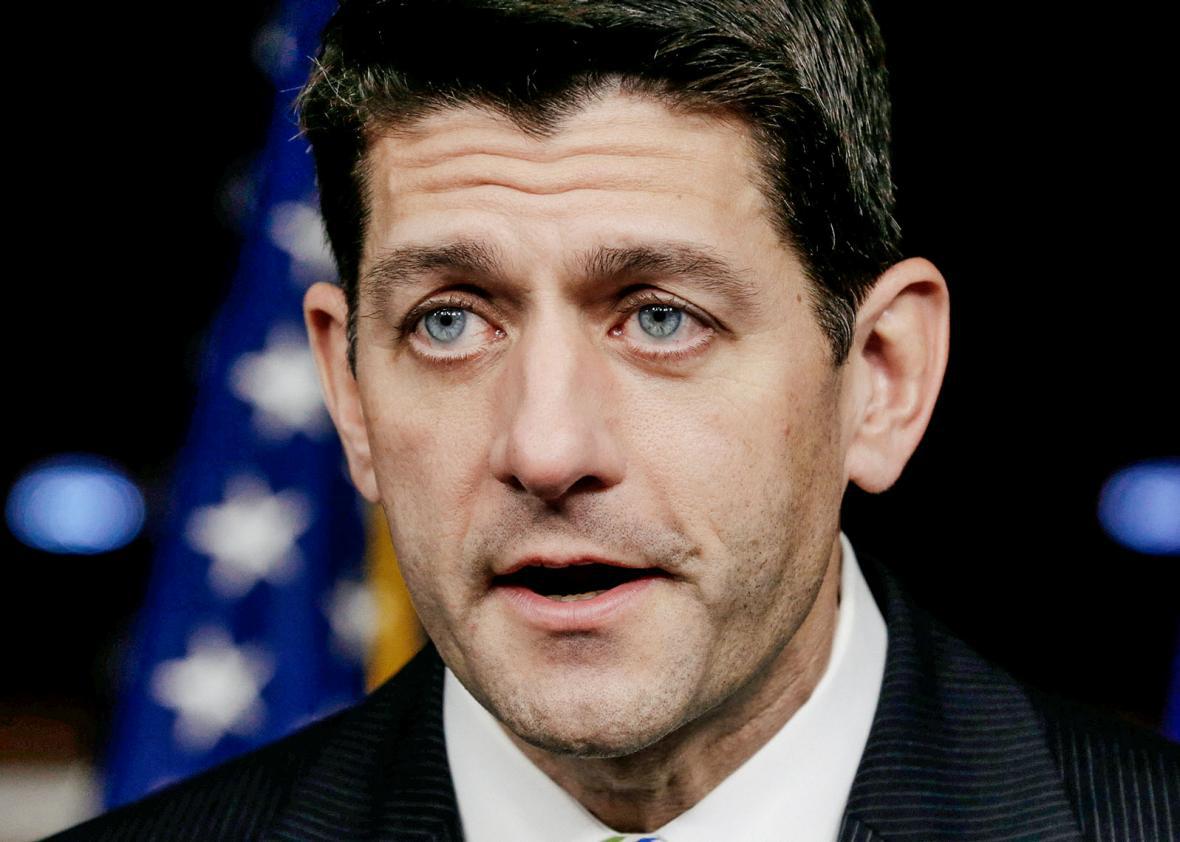The White House seems to think that it’s on the shoals of victory on health care. This comes as Freedom Caucus Chairman Rep. Mark Meadows and Tuesday Group Co-chairman Rep. Tom MacArthur neared an agreement this week to try to sell to their colleagues. There was no sign on Thursday, however, that this agreement would be enough to corral the 216 votes necessary to revive the long presumed dead health care bill. And as ever, there is a strong disconnect between what President Trump wants—any sort of legislative “achievement” before his first 100 days are up—and what the House Republican conference is capable of delivering.
The amendment that MacArthur and Meadows negotiated, an outline of which was first reported by the Huffington Post on Wednesday night, follows the same “opt-out” structure as the proposal that crashed the week before members went on recess. (The new amendment would make these modifications to the original bill that spectacularly imploded in March.) It would allow states to apply for waivers for some of Obamacare’s regulations—essential health benefit requirements and certain community ratings. The twist this time, as my colleague Jordan Weissmann explained, is that states would only be able to waive out of community rating by health status if “the state has established a high risk pool or is participating in a federal high risk pool”—i.e., a fallback receptacle for all of the sick people who would be priced out of regular insurance markets if carriers were allowed to discriminate by individual health status.
This doesn’t appear to resolve any of the problems either conservative or moderate holdouts had two weeks ago when the waiver option was first floated.
Several Freedom Caucus members told me two weeks ago that waivers still constituted an affront to states’ rights, since they required a state to “beg” the federal government to conduct its health care policy the way it desired. They wanted the regulations repealed outright. This proposal still doesn’t do that.
And moderates were furious two weeks ago at the audacity of treating community rating by health status—a key regulation to ensure that those with serious pre-existing conditions can afford insurance—as negotiable. This new proposal still allows states to waive out of it, but with the addition of the high-risk pool requirement. We are still waiting to see the legislative text, but every description of the amendment I’ve read sounds awfully flaky on what funding levels and requirements there would be for those high-risk pools—you know, to ensure that they work. One phrase in particular from the description on MacArthur’s own Facebook page is worth considering (italics mine): “States have the option to obtain a waiver from some federal standards, but the state must attest that its purpose is to reduce the cost of health care or increase the number of people with health care coverage.” It is very easy to “attest” one’s “purpose.” Our president, for example, attests that his purpose is to Make America Great Again. He also attested during a news conference on Thursday that the idea that health care was dead was a media construct, having previously attested that he was giving up on health care for the moment and that his last offer to House Republicans was “take it or leave it.” Talk is cheap, and functioning high-risk pools are expensive.
Lest we forget, these changes would be layered atop an existing bill—the American Health Care Act—that has always been extraordinarily unpopular. One prior “no” vote, Staten Island Rep. Dan Donovan, told me Thursday afternoon that the new proposal doesn’t move him because it doesn’t address his existing concerns: the hundreds of billions of dollars in Medicaid cuts, the “Buffalo buyoff” provision that effectively transfers Medicaid costs from upstate New York counties to New York City, and the soaring Congressional Budget Office premium projections for lower-income seniors. It was always going to be a tremendous ask of vulnerable members to vote for the AHCA, and it’s no salve for a congressman like Donovan that his blue state’s government wouldn’t opt out of popular regulations. The bill does far too much damage already.
Say what you will about the House GOP, but they’re cognizant by now of their own shortcomings as a cohesive governing body. You will not find them spreading much optimism or building up expectations about this latest proposal. Here, for example, is the response I got from a senior GOP aide to the question of whether it was fair to use the word deal to describe this amendment: “The question is whether it can get 216 votes in the House and the answer isn’t clear at this time,” the aide said. “There is no legislative text and therefore no agreement to do a whip count on.” Another Republican aide involved in the talks, when asked how many moderates this could bring on board, said only that “discussions are still ongoing with moderates.”
The optimism and unnecessarily built-up expectations are coming from the White House, and our president, who does not in any way understand Capitol Hill. What he does understand is that panel after idiotic cable news panel keeps saying that Trump’s first 100 days are nearly up, and he doesn’t have any significant legislative “wins.” Because he knows nothing about governing, he appears to have bought into the myths that a) the “first 100 days” is a useful measuring stick of success that anyone actually cares about and b) enactment of the AHCA would be a “win” because it would put “points on the board.” And so he’s demanding that his staff find a way to get this done before the culmination of his first 100 days, to solve an impossible problem the same week the House’s attention needs to be focused on keeping the government open. When asked if he had to choose which of these he would prefer get done next week at Thursday’s news conference, Trump said he wanted “both.”
Sounds like they’ve got it all figured out.
